|
시장보고서
상품코드
1722549
프리프레그 시장 보고서 : 수지 유형, 섬유 유형, 제조 공정, 최종 이용 산업, 지역별(2025-2033년)Prepreg Market Report by Resin Type, Fiber Type, Manufacturing Process, End Use Industry, and Region 2025-2033 |
||||||
세계 프리프레그 시장 규모는 2024년 132억 달러에 달했습니다. 향후 IMARC Group은 2033년에는 249억 달러에 달할 것으로 예상하며, 2025-2033년 연평균 성장률(CAGR)은 6.92%에 달할 것으로 전망하고 있습니다. 경량 자동차 부품 제조에 대한 관심 증가, 화석연료를 대체할 수 있는 지속가능한 대체 에너지로 풍력에너지 이용 증가, 우주 탐사 활동의 활성화, 차세대 항공기 시장 개척 등이 시장을 견인하는 주요 요인으로 꼽힙니다.
프리프레그는 강화섬유와 열경화성 수지 매트릭스를 포함하는 두 가지 주요 성분으로 구성된 복합재료입니다. 프리프레그는 수지의 균일한 분포를 보장하고 재료 특성을 정밀하게 제어할 수 있는 세심한 제조 공정을 통해 제조됩니다. 수지를 액체에서 고체로 변화시켜 최대 강도와 강성을 확보하기 위해서는 일반적으로 열과 압력을 수반하는 특정 경화 공정이 필요합니다. 높은 강도 대 중량비를 실현하고 전체 제품 무게를 줄입니다. 또한 뛰어난 기계적 특성을 제공하여 제품의 내구성과 성능을 향상시킵니다.
현재 테니스 라켓, 골프 클럽 샤프트, 자전거 프레임과 같은 스포츠 장비를 만들기 위해 프리프레그의 사용이 증가하고 있으며, 성능과 내구성을 높이기 위해 프리프레그의 사용이 증가하면서 시장 성장을 촉진하고 있습니다. 이와 더불어, 절연 및 기계적 지지력을 제공하기 위한 인쇄회로기판(PCB)에서 프리프레그에 대한 수요가 증가함에 따라 시장 성장에 기여하고 있습니다. 또한, 구조적 무결성을 유지하면서 무게를 줄이기 위해 보트 선체 및 기타 부품의 해양 분야에서 프리프레그의 채택이 증가하고 있는 것도 좋은 시장 전망을 제공하고 있습니다. 이와는 별도로, 지속가능성과 환경에 대한 관심이 높아지면서 시장 성장을 뒷받침하고 있습니다. 또한, 우주 탐사 활동의 활성화와 차세대 항공기 개발이 시장 성장을 촉진하고 있습니다.
프리프레그 시장 동향과 촉진요인:
경량 자동차 부품 제조에 대한 관심 증가
경량 자동차 부품 제조에 대한 관심이 높아지면서 프리프레그 시장 성장에 긍정적인 영향을 미치고 있습니다. 이 외에도, 자동차 분야에서는 경량 부품을 설계하고 제조하기 위한 혁신적인 방법을 지속적으로 모색하고 있습니다. 섬유로 강화된 수지 매트릭스로 구성된 복합재료인 프리프레그는 이러한 목적을 달성하기 위한 중요한 솔루션으로 부상하고 있습니다. 프리프레그를 사용하면 자동차 부품의 무게가 가벼워질 뿐만 아니라 기존 소재에 비해 강도와 강성 특성이 우수합니다. 또한, 현재 환경 지속가능성에 대한 관심이 높아지면서 배기가스 규제에 대한 엄격한 규제가 자동차 제조에 프리프레그의 채택을 가속화하고 있습니다. 프리프레그와 같은 경량 소재의 사용은 자동차의 탄소발자국을 줄이는 데 도움이 되며, 자동차 제조업체와 소비자 모두에게 매력적인 선택이 되고 있습니다.
풍력에너지 이용 증가
대중의 환경 인식이 높아짐에 따라 풍력에너지 이용이 증가함에 따라 프리프레그에 대한 수요가 증가하고 있습니다. 이와 더불어, 우수한 기계적 특성과 내구성을 가진 복합재료인 프리프레그는 풍력 터빈 블레이드 제조에 점점 더 많이 사용되고 있습니다. 풍력 터빈 기술의 지속적인 개발 및 강화로 인해 강풍과 온도 변화 등 풍력발전소의 까다로운 조건을 견딜 수 있는 재료에 대한 요구가 증가하고 있습니다. 그 결과, 프리프레그 제조업체들은 풍력에너지 분야로부터의 주문이 증가하고 있으며, 이는 시장 성장에 더욱 기여하고 있습니다. 또한, 풍력발전 프로젝트가 지속적으로 확대됨에 따라 풍력 터빈 용도에 특화된 첨단 프리프레그 소재 개발에 대한 투자가 촉진되고 있습니다.
복합재료의 인기 상승
현재 복합재료의 인기가 높아지면서 프리프레그 시장의 성장을 견인하고 있습니다. 이와 더불어, 현재 항공우주 및 자동차 분야는 큰 변화의 시기를 맞이하고 있으며, 경량화 및 고강도 소재에 대한 수요가 증가하고 있습니다. 프리프레그를 포함한 복합재료는 이러한 산업의 까다로운 요구 사항을 충족하는 데 점점 더 중요한 역할을 하고 있습니다. 이러한 지속적인 수요 증가는 프리프레그 시장의 지속적인 확장에 직접적으로 기여하고 있습니다. 또한, 제조 공정과 기술의 지속적인 발전은 프리프레그의 품질, 성능 및 다양성을 지속적으로 개선하고 있습니다. 제조업체들은 현재 연구 개발(R&D) 활동에 투자하여 이러한 재료를 보다 비용 효율적이고 가공하기 쉬운 재료로 개선하고 있습니다. 이러한 지속적인 기술 혁신은 복합재료가 필수적인 산업에서 프리프레그가 더욱 폭넓게 수용될 수 있는 원동력이 되고 있습니다.
목차
제1장 서문
제2장 조사 범위와 조사 방법
- 조사 목적
- 이해관계자
- 데이터 소스
- 1차 정보
- 2차 정보
- 시장 추정
- 상향식 접근
- 하향식 접근
- 조사 방법
제3장 주요 요약
제4장 소개
- 개요
- 주요 업계 동향
제5장 세계의 프리프레그 시장
- 시장 개요
- 시장 실적
- COVID-19의 영향
- 시장 예측
제6장 시장 내역 : 수지 유형별
- 열경화성
- 열가소성
- 에폭시
- 기타
제7장 시장 내역 : 섬유 유형별
- 탄소
- 유리
- 아라미드
제8장 시장 내역 : 제조 공정별
- 핫멜트 프로세스
- 용제 침지 프로세스
제9장 시장 내역 : 최종 이용 산업별
- 항공우주 및 방위
- 자동차
- 전기·전자공학
- 풍력 터빈
- 스포츠 용품
- 기타
제10장 시장 내역 : 지역별
- 북미
- 미국
- 캐나다
- 아시아태평양
- 중국
- 일본
- 인도
- 한국
- 호주
- 인도네시아
- 기타
- 유럽
- 독일
- 프랑스
- 영국
- 이탈리아
- 스페인
- 러시아
- 기타
- 라틴아메리카
- 브라질
- 멕시코
- 기타
- 중동 및 아프리카
- 시장 내역 : 국가별
제11장 SWOT 분석
- 개요
- 강점
- 약점
- 기회
- 위협
제12장 밸류체인 분석
제13장 Porter's Five Forces 분석
- 개요
- 구매자의 교섭력
- 공급 기업의 교섭력
- 경쟁 정도
- 신규 참여업체의 위협
- 대체품의 위협
제14장 가격 분석
제15장 경쟁 구도
- 시장 구조
- 주요 기업
- 주요 기업 개요
- Axiom Materials Inc.(Kordsa Incorporated)
- Composites One LLC(Synergy55 Inc.)
- Gurit Holding
- Hexcel Corporation
- Mitsubishi Chemical Corporation
- Park Aerospace Corp.
- SGL Carbon SE
- Solvay S.A.
- Sunrez Corporation
- Teijin Limited
- Toray Industries Inc.
- Ventec International Group
The global prepreg market size reached USD 13.2 Billion in 2024. Looking forward, IMARC Group expects the market to reach USD 24.9 Billion by 2033, exhibiting a growth rate (CAGR) of 6.92% during 2025-2033. The growing focus on manufacturing lightweight automotive parts, the rising utilization of wind energy as a sustainable alternative to fossil fuels, the increasing space exploration activities and the development of next-generation aircraft are some of the major factors propelling the market.
Prepregs is a composite material that comprises two primary components, including reinforcing fibers and a thermosetting resin matrix. It is produced through a meticulous manufacturing process that ensures uniform resin distribution, enabling precise control over material properties. It requires a specific curing process, typically involving heat and pressure, to transform the resin from a liquid to a solid state, ensuring maximum strength and stiffness. It offers high strength-to-weight ratios, reducing the overall weight of products. It also provides exceptional mechanical properties, enhancing product durability and performance.
At present, the increasing utilization of prepregs to make sporting equipment, such as tennis rackets, golf club shafts, and bicycle frames, enhancing performance and durability, is impelling the growth of the market. Besides this, the rising demand for prepregs in printed circuit boards (PCBs) to provide insulation and mechanical support is contributing to the growth of the market. In addition, the growing employment of prepregs in the marine sector for boat hulls and other components to reduce weight while maintaining structural integrity is offering a favorable market outlook. Apart from this, the increasing focus on sustainability and environmental concerns is supporting the growth of the market. Additionally, the rising space exploration activities and the development of next-generation aircraft are bolstering the growth of the market.
Prepreg Market Trends/Drivers:
Growing focus on manufacturing lightweight automotive parts
The growing focus on manufacturing lightweight automotive parts is currently exerting a positive influence on the growth of the prepreg market. Besides this, in the automotive sector, manufacturers are continuously seeking innovative ways to design and produce lightweight components. Prepregs, which are composite materials composed of resin matrices reinforced with fibers, are emerging as a key solution in achieving this objective. Their use results in automotive parts that are not only lighter but also offer superior strength and stiffness properties compared to traditional materials. Furthermore, the present emphasis on environmental sustainability and stringent regulations governing emissions are accelerating the adoption of prepregs in automotive manufacturing. The use of lightweight materials, such as prepregs, aids in reducing the carbon footprint of the vehicle, making it an attractive choice for both automakers and consumers.
Rising utilization of wind energy
The rising utilization of wind energy due to increasing environmental consciousness among the masses is propelling the demand for prepregs. Besides this, prepregs, being composite materials with excellent mechanical properties and durability, are increasingly being used in the manufacturing of wind turbine blades. The continuous development and enhancement of wind turbine technology is growing the need for materials that can withstand the demanding conditions of wind farms, including high wind speeds and varying temperatures. As a result, prepreg manufacturers are witnessing a rise in orders from the wind energy sector, further contributing to the growth of the market. Moreover, the ongoing expansion of wind energy projects is encouraging investments in the development of advanced prepreg materials specifically tailored for wind turbine applications.
Increasing popularity of composite materials
Presently, the increasing popularity of composite materials is bolstering the growth of the prepreg market. Besides this, the aerospace and automotive sectors are presently undergoing a significant transformation, with a rising demand for lightweight, high-strength materials. Composite materials, which include prepregs, are playing an increasingly vital role in meeting these stringent requirements of the industry. This ongoing increment in demand is directly contributing to the continuous expansion of the prepreg market. Additionally, ongoing advancements in manufacturing processes and technologies are continually improving the quality, performance, and versatility of prepregs. Manufacturers are currently investing in research and development (R&D) activities to enhance these materials, making them more cost-effective and easier to work with. These ongoing innovations are driving greater acceptance of prepregs in industries where composite materials are an indispensable requirement.
Prepreg Industry Segmentation:
Breakup by Resin Type:
- Thermoset
- Thermoplastic
- Epoxy
- Others
Thermoset dominate the market
Thermosets refer to a class of polymers or plastics that undergo a chemical change when subjected to heat, resulting in a permanent and irreversible change in their physical properties. They are known for their excellent heat resistance and dimensional stability. They can withstand high temperatures without softening or deforming, making them suitable for various applications where heat resistance is crucial. They are used in the production of electrical components, circuit boards, and insulating coatings. They are often highly resistant to chemicals and corrosion, making them valuable in industries where exposure to harsh chemicals is common, such as the chemical processing industry. They are also used in the production of various consumer goods, including kitchen utensils, electrical switches, and appliance handles, due to their durability and resistance to heat.
Breakup by Fiber Type:
- Carbon
- Glass
- Aramid
Carbon holds the largest share in the market
Carbon fibers are strong and lightweight, making them ideal for applications where strength and stiffness are crucial, such as aerospace and automotive components. This results in structures that are both durable and fuel-efficient. Carbon fibers have low thermal expansion coefficients, meaning they maintain their shape and dimensions across a wide range of temperatures. This is crucial in applications subject to extreme temperature variations. Carbon is highly resistant to corrosion, making it suitable for use in aggressive environments, like chemical processing plants or marine applications. The properties of carbon fibers can be tailored to meet specific requirements by adjusting the fiber orientation, weave patterns, and resin formulations. This flexibility makes carbon prepregs versatile and adaptable to diverse applications.
Breakup by Manufacturing Process:
- Hot-Melt Process
- Solvent Dip Process
Hot-melt process holds the biggest share in the market
The hot-melt process, also known as hot-melt adhesive or hot glue process, refers to a method of joining or bonding materials using a thermoplastic adhesive that is heated until it becomes a liquid and then applied to the surfaces to be bonded. The hot-melt process allows for precise control over resin impregnation, ensuring consistent and uniform distribution of resin throughout the prepreg material. This consistency is critical for achieving predictable mechanical properties in the final composite product. Prepregs produced through the hot-melt process often have good tack properties, making them easier to handle and position during composite lay-up processes. This tackiness helps in reducing the risk of fiber misalignment and improving overall manufacturing efficiency.
Breakup by End Use Industry:
- Aerospace and Defense
- Automotive
- Electrical and Electronics
- Wind Turbine
- Sporting Goods
- Others
Aerospace and defense hold the maximum share in the market
Prepregs are extensively used in the manufacturing of aircraft structures, including wings, fuselages, empennages, and fairings. Their high strength and lightweight properties help reduce the weight of the aircraft, leading to improved fuel efficiency and performance. In helicopters, prepregs are used for rotor blades, tail booms, and other critical components. Their high stiffness and durability make them ideal for withstanding the dynamic loads and vibrations associated with rotary-wing aircraft. Prepregs are crucial in the aerospace industry for building lightweight and strong structures for spacecraft and satellites. They help reduce launch costs by minimizing the weight of these vehicles and payloads. Additionally, prepregs can withstand the extreme conditions of space, including vacuum and radiation.
Breakup by Region:
- North America
- United States
- Canada
- Asia-Pacific
- China
- Japan
- India
- South Korea
- Australia
- Indonesia
- Others
- Europe
- Germany
- France
- United Kingdom
- Italy
- Spain
- Russia
- Others
- Latin America
- Brazil
- Mexico
- Others
- Middle East and Africa
North America exhibits a clear dominance, accounting for the largest prepreg market share
The market research report has also provided a comprehensive analysis of all the major regional markets, which include North America (the United States and Canada); Asia Pacific (China, Japan, India, South Korea, Australia, Indonesia, and others); Europe (Germany, France, the United Kingdom, Italy, Spain, Russia, and others); Latin America (Brazil, Mexico, and others); and the Middle East and Africa. According to the report, North America accounted for the largest market share.
North America held the biggest market due to the rising emphasis on fuel efficiency and reducing greenhouse gas emissions. Besides this, the increasing focus on manufacturing lightweight and durable wind turbine blades, which are essential for enhancing the efficiency and reliability of wind energy generation is contributing to the market growth. Apart from this, the rising demand for lightweight and high-strength materials in the defense sector is supporting the growth of the market. Additionally, increasing advancements in manufacturing processes and resin formulations are propelling the growth of the market.
Asia Pacific is estimated to expand further in this domain due to the rising focus on minimizing material waste and energy consumption in various industrial operations. Moreover, the increasing popularity of composite materials is bolstering the growth of the market.
Competitive Landscape:
Key market players are investing in research operations to create advanced materials with improved properties. They are also developing prepregs with enhanced mechanical, thermal, and electrical properties to meet the evolving demands of various industries, such as aerospace, automotive, and wind energy. Top companies are expanding their production capabilities to meet growing demand by building new manufacturing facilities and increasing automation to improve efficiency and reduce production costs. They are also diversifying their product portfolios to cater to a broader range of applications by developing prepregs for niche markets and customizing products to meet specific customer requirements. Leading companies are working on developing eco-friendly prepregs with reduced environmental impact.
The report has provided a comprehensive analysis of the competitive landscape in the market. Detailed profiles of all major companies have also been provided. Some of the key players in the market include:
- Axiom Materials Inc. (Kordsa Incorporated)
- Composites One LLC (Synergy55 Inc.)
- Gurit Holding
- Hexcel Corporation
- Mitsubishi Chemical Corporation
- Park Aerospace Corp.
- SGL Carbon SE
- Solvay S.A.
- Sunrez Corporation
- Teijin Limited
- Toray Industries Inc.
- Ventec International Group
(Please note that this is only a partial list of the key players, and the complete list is provided in the report.)
Recent Developments:
In 2022, Kordsa Incorporated invested in composited technologies to reinforce its presence in Europe by acquiring major shares of Microtex Composites.
In April 2022, Gurit Holding announced the acquisition of 60% shares of Fiberline Composites A/S, which will help it enhance its product offering in the wind energy market.
In 2023, Hexcel Corporation announced the inauguration of its new engineered core operations plant in Morocco to fulfill the rising demand for lightweight and advanced composite materials in the aerospace sector.
Key Questions Answered in This Report
- 1.What was the size of the global prepreg market in 2024?
- 2.What is the expected growth rate of the global prepreg market during 2025-2033?
- 3.What are the key factors driving the global prepreg market?
- 4.What has been the impact of COVID-19 on the global prepreg market?
- 5.What is the breakup of the global prepreg market based on the resin type?
- 6.What is the breakup of the global prepreg market based on the fiber type?
- 7.What is the breakup of the global prepreg market based on the manufacturing process?
- 8.What is the breakup of the global prepreg market based on the end use industry?
- 9.What are the key regions in the global prepreg market?
- 10.Who are the key players/companies in the global prepreg market?
Table of Contents
1 Preface
2 Scope and Methodology
- 2.1 Objectives of the Study
- 2.2 Stakeholders
- 2.3 Data Sources
- 2.3.1 Primary Sources
- 2.3.2 Secondary Sources
- 2.4 Market Estimation
- 2.4.1 Bottom-Up Approach
- 2.4.2 Top-Down Approach
- 2.5 Forecasting Methodology
3 Executive Summary
4 Introduction
- 4.1 Overview
- 4.2 Key Industry Trends
5 Global Prepreg Market
- 5.1 Market Overview
- 5.2 Market Performance
- 5.3 Impact of COVID-19
- 5.4 Market Forecast
6 Market Breakup by Resin Type
- 6.1 Thermoset
- 6.1.1 Market Trends
- 6.1.2 Market Forecast
- 6.2 Thermoplastic
- 6.2.1 Market Trends
- 6.2.2 Market Forecast
- 6.3 Epoxy
- 6.3.1 Market Trends
- 6.3.2 Market Forecast
- 6.4 Others
- 6.4.1 Market Trends
- 6.4.2 Market Forecast
7 Market Breakup by Fiber Type
- 7.1 Carbon
- 7.1.1 Market Trends
- 7.1.2 Market Forecast
- 7.2 Glass
- 7.2.1 Market Trends
- 7.2.2 Market Forecast
- 7.3 Aramid
- 7.3.1 Market Trends
- 7.3.2 Market Forecast
8 Market Breakup by Manufacturing Process
- 8.1 Hot-Melt Process
- 8.1.1 Market Trends
- 8.1.2 Market Forecast
- 8.2 Solvent Dip Process
- 8.2.1 Market Trends
- 8.2.2 Market Forecast
9 Market Breakup by End Use Industry
- 9.1 Aerospace and Defense
- 9.1.1 Market Trends
- 9.1.2 Market Forecast
- 9.2 Automotive
- 9.2.1 Market Trends
- 9.2.2 Market Forecast
- 9.3 Electrical and Electronics
- 9.3.1 Market Trends
- 9.3.2 Market Forecast
- 9.4 Wind Turbine
- 9.4.1 Market Trends
- 9.4.2 Market Forecast
- 9.5 Sporting Goods
- 9.5.1 Market Trends
- 9.5.2 Market Forecast
- 9.6 Others
- 9.6.1 Market Trends
- 9.6.2 Market Forecast
10 Market Breakup by Region
- 10.1 North America
- 10.1.1 United States
- 10.1.1.1 Market Trends
- 10.1.1.2 Market Forecast
- 10.1.2 Canada
- 10.1.2.1 Market Trends
- 10.1.2.2 Market Forecast
- 10.1.1 United States
- 10.2 Asia-Pacific
- 10.2.1 China
- 10.2.1.1 Market Trends
- 10.2.1.2 Market Forecast
- 10.2.2 Japan
- 10.2.2.1 Market Trends
- 10.2.2.2 Market Forecast
- 10.2.3 India
- 10.2.3.1 Market Trends
- 10.2.3.2 Market Forecast
- 10.2.4 South Korea
- 10.2.4.1 Market Trends
- 10.2.4.2 Market Forecast
- 10.2.5 Australia
- 10.2.5.1 Market Trends
- 10.2.5.2 Market Forecast
- 10.2.6 Indonesia
- 10.2.6.1 Market Trends
- 10.2.6.2 Market Forecast
- 10.2.7 Others
- 10.2.7.1 Market Trends
- 10.2.7.2 Market Forecast
- 10.2.1 China
- 10.3 Europe
- 10.3.1 Germany
- 10.3.1.1 Market Trends
- 10.3.1.2 Market Forecast
- 10.3.2 France
- 10.3.2.1 Market Trends
- 10.3.2.2 Market Forecast
- 10.3.3 United Kingdom
- 10.3.3.1 Market Trends
- 10.3.3.2 Market Forecast
- 10.3.4 Italy
- 10.3.4.1 Market Trends
- 10.3.4.2 Market Forecast
- 10.3.5 Spain
- 10.3.5.1 Market Trends
- 10.3.5.2 Market Forecast
- 10.3.6 Russia
- 10.3.6.1 Market Trends
- 10.3.6.2 Market Forecast
- 10.3.7 Others
- 10.3.7.1 Market Trends
- 10.3.7.2 Market Forecast
- 10.3.1 Germany
- 10.4 Latin America
- 10.4.1 Brazil
- 10.4.1.1 Market Trends
- 10.4.1.2 Market Forecast
- 10.4.2 Mexico
- 10.4.2.1 Market Trends
- 10.4.2.2 Market Forecast
- 10.4.3 Others
- 10.4.3.1 Market Trends
- 10.4.3.2 Market Forecast
- 10.4.1 Brazil
- 10.5 Middle East and Africa
- 10.5.1 Market Trends
- 10.5.2 Market Breakup by Country
- 10.5.3 Market Forecast
11 SWOT Analysis
- 11.1 Overview
- 11.2 Strengths
- 11.3 Weaknesses
- 11.4 Opportunities
- 11.5 Threats
12 Value Chain Analysis
13 Porters Five Forces Analysis
- 13.1 Overview
- 13.2 Bargaining Power of Buyers
- 13.3 Bargaining Power of Suppliers
- 13.4 Degree of Competition
- 13.5 Threat of New Entrants
- 13.6 Threat of Substitutes
14 Price Analysis
15 Competitive Landscape
- 15.1 Market Structure
- 15.2 Key Players
- 15.3 Profiles of Key Players
- 15.3.1 Axiom Materials Inc. (Kordsa Incorporated)
- 15.3.1.1 Company Overview
- 15.3.1.2 Product Portfolio
- 15.3.2 Composites One LLC (Synergy55 Inc.)
- 15.3.2.1 Company Overview
- 15.3.2.2 Product Portfolio
- 15.3.3 Gurit Holding
- 15.3.3.1 Company Overview
- 15.3.3.2 Product Portfolio
- 15.3.3.3 Financials
- 15.3.4 Hexcel Corporation
- 15.3.4.1 Company Overview
- 15.3.4.2 Product Portfolio
- 15.3.4.3 Financials
- 15.3.4.4 SWOT Analysis
- 15.3.5 Mitsubishi Chemical Corporation
- 15.3.5.1 Company Overview
- 15.3.5.2 Product Portfolio
- 15.3.6 Park Aerospace Corp.
- 15.3.6.1 Company Overview
- 15.3.6.2 Product Portfolio
- 15.3.6.3 Financials
- 15.3.7 SGL Carbon SE
- 15.3.7.1 Company Overview
- 15.3.7.2 Product Portfolio
- 15.3.7.3 Financials
- 15.3.7.4 SWOT Analysis
- 15.3.8 Solvay S.A.
- 15.3.8.1 Company Overview
- 15.3.8.2 Product Portfolio
- 15.3.8.3 Financials
- 15.3.8.4 SWOT Analysis
- 15.3.9 Sunrez Corporation
- 15.3.9.1 Company Overview
- 15.3.9.2 Product Portfolio
- 15.3.10 Teijin Limited
- 15.3.10.1 Company Overview
- 15.3.10.2 Product Portfolio
- 15.3.10.3 Financials
- 15.3.10.4 SWOT Analysis
- 15.3.11 Toray Industries Inc.
- 15.3.11.1 Company Overview
- 15.3.11.2 Product Portfolio
- 15.3.11.3 Financials
- 15.3.11.4 SWOT Analysis
- 15.3.12 Ventec International Group
- 15.3.12.1 Company Overview
- 15.3.12.2 Product Portfolio
- 15.3.1 Axiom Materials Inc. (Kordsa Incorporated)



















